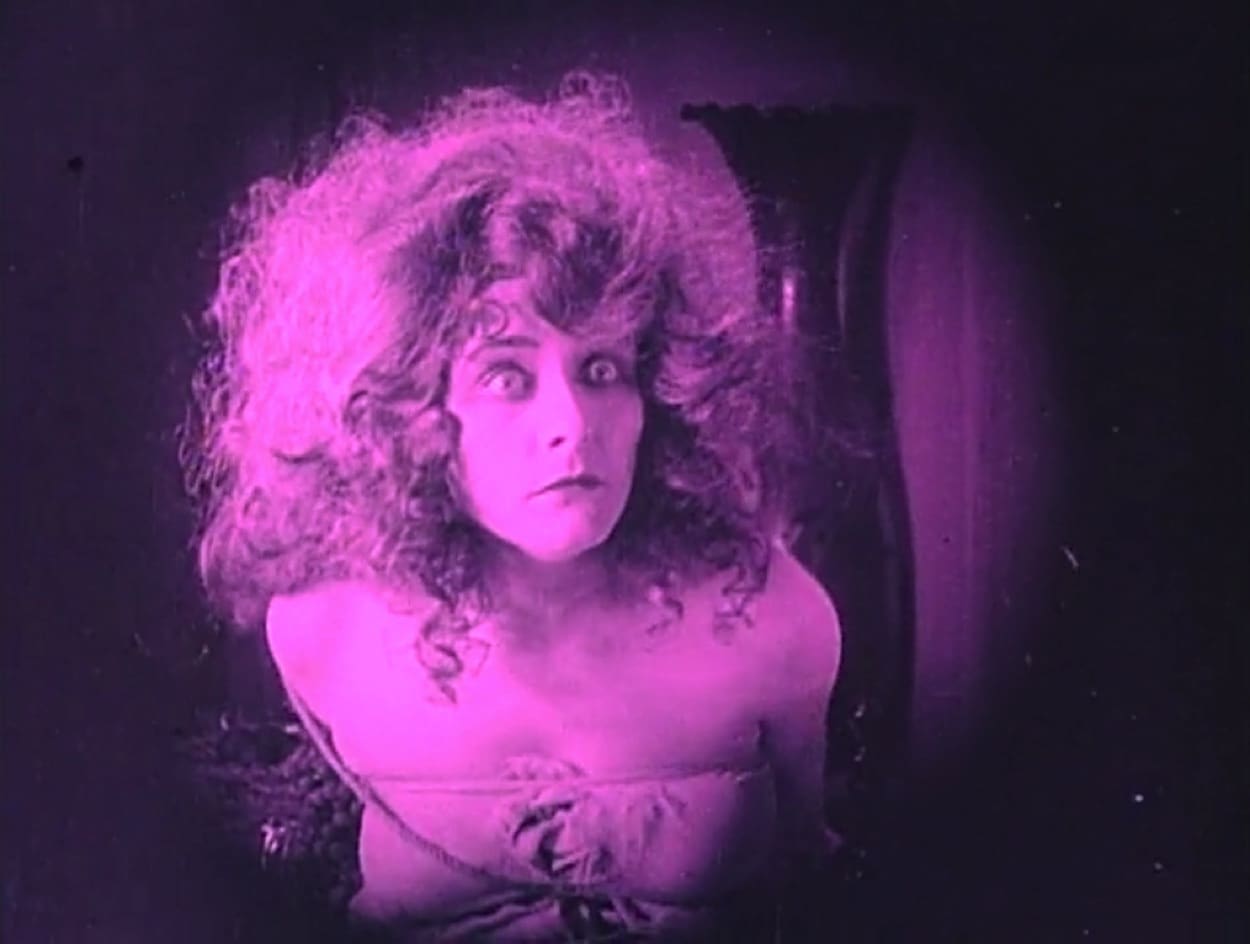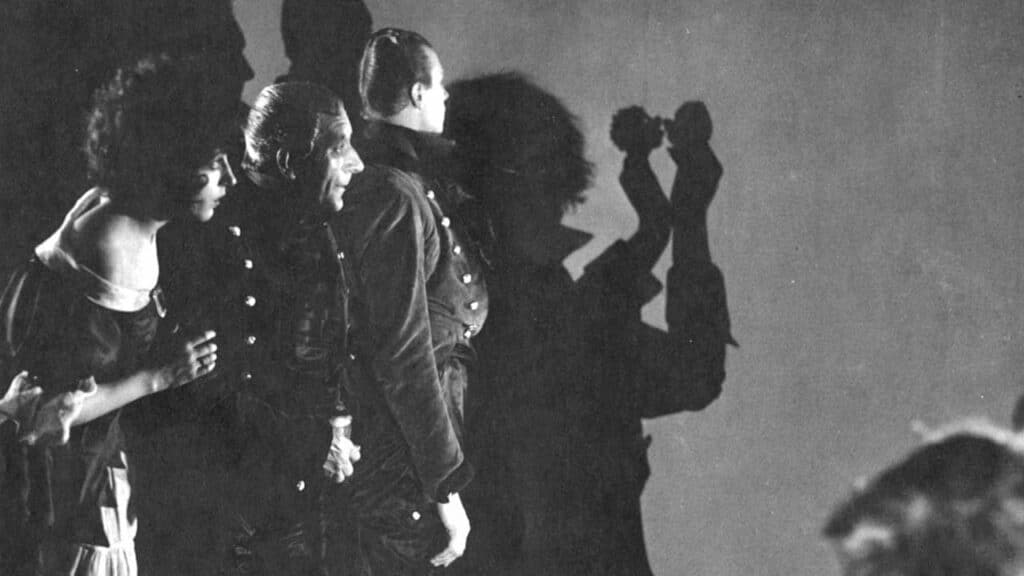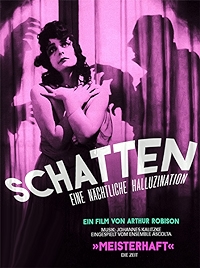The remarkable Warning Shadows (Schatten: Eine nächtliche Halluzination) is often lumped together with other German movies of the 1920s as expressionist but it’s only tangentially an expressionist movie. It’s too strange to fit in that box, too individualistic.
As silent movies go it’s strange too. Once it’s done its introductions – the characters’ names materialise as the actors appear on stage in front of a white screen which will take on significance later – there are no intertitles, not one. The American born but Germany-raised director/writer Arthur Robison does it all with images and his actors, no further explanation necessary.
The story is weird as well – like a sexed-up fairy tale – about a husband who is intensely concerned that his hot wife is going to have sex with one or all of the four men who are visiting their big old house. And well he might worry: his wife is flashing her eyes at anything in trousers, and her breasts are almost falling out of her dress, a flimsy garment whose shoulder straps have a tendency to slip.
One of the four men actually is her lover, unbeknown to the husband, and the other three have been introduced as “cavaliers”, which suggests roistering, carousing and the full gamut of other fun-seeking activities. So on one side the husband, an angry and jealous type being provoked almost beyond his own control. On the other four guys who are either undressing his wife with their eyes or licking their lips in anticipation. Between them is the wife herself, who seems to be glorying in the attention.
In an “it was a dark and story night” development, a lopsided, grinning itinerant shadowmaker suddenly arrives on the scene. This wandering entertainer has somehow got past the servants and now presses himself on the husband, who asks him to entertain his guests. And so he puts on a show, casting shadows onto the white screen mentioned earlier. A shadow play.
Robison does something incredible here, whisking the viewer from the realm of reality into the shadowplay itself. One minute we’re watching shadow puppets, the next the husband, the wife and the four rogue males have taken their places to act out a warning mummers play, a taste of what might happen if the libidinous to-and-fro is allowed to continue. The “warning shadows” of the title.
Robison uses shadows in other ways. Even before the shadowmaker arrives the other characters have been casting huge shadows on the walls. In a crucial scene-setter early on the husband, through a curtain in an adjoining room, fancies he sees the three cavaliers groping his wife. In fact they’re having a bit of laddish fun making their shadows interact with hers. No physical contact at all has been made and the wife is unaware of what the men are up to.
Robison’s change of register from the real to the fantastical is also achieved with the use of shadow: a simple but effective change in the position of an overhead light causes the shadows of his characters to shorten, disappear and then lengthen onto the other side of the table where all are sitting. The wife, the husband and the libidinous men fall into a stupour, or a magical trance. The play within the play begins.
The shadows, the stark lighting and the extreme stylisation are what gets the film bracketed as expressionist but many of expressionism’s usual stylistic elements are missing: there are no forced perspectives, no converging parallels, nothing in the built environment – the house, the furniture – becomes expressive, as it does in full-throated expressionism.
The lighting is by Fritz Arno Wagner, who did Nosferatu for Murnau and M for Fritz Lang, so the decision to label Warning Shadows as expressionist is understandable. And it is expressionistic, if you’re happy to make that box a little more flexible than usual.
The film itself is in good shape, thanks to a restoration in 2016, and now often comes with two different scores. I switched between the (mostly) solo piano score by Donald Sosin, which works well in the setting-up section of the film, where the alternative score, by Johannes Kalizke and the Ensemble Ascolto tends to be a bit atonally harsh. But the Ensemble have more success as the action builds to a nightmare frenzy, and there is some logic to using expressionist music of a sort Schoenberg, Webern and Berg would recognise.
The actors are fine: the shadowmaker (Alexander Granach) charismatic and naughty, Ruth Weyher overdoes the coquettishness as the wife, Fritz Kortner glowers more than is perhaps necessary as the (deservingly?) wronged husband. But it’s all of a piece with the shadowplay itself. Big shadows in a little world revealing a truth not available to the rational mind. A brilliant and unique film.
Warning Shadows aka Schatten: Eine nächtliche Halluzination – Watch it/buy it at Amazon
I am an Amazon affiliate
© Steve Morrissey 2023


